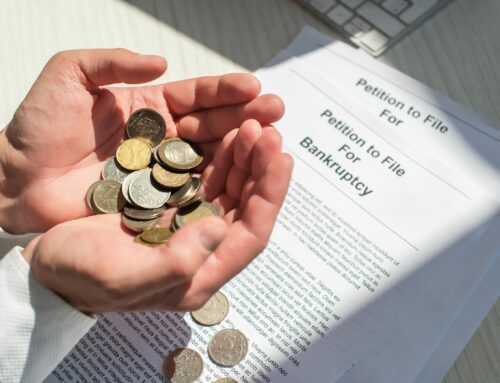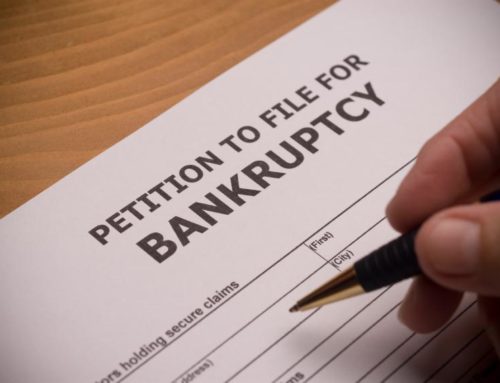Life doesn’t always go as planned and sometimes it is a struggle to make ends meet. At times it gets to the point where you’re drowning in debt and no longer knows what to do to rise above it.
Luckily, the U.S. Federal Law has provisions to give us debt relief in the form of bankruptcy. Do not be afraid of bankruptcy because bankruptcy law can be helpful. It might be the key for you to have a fresh start and a clean slate.
There are two types of bankruptcy in the bankruptcy code that are most applicable to cases of personal bankruptcy. These are named according to their bankruptcy chapter and are called Chapter 7 and Chapter 13.
Chapter 7 Bankruptcy
Chapter 7 bankruptcy is also known as liquidation bankruptcy or straight bankruptcy. It is named as such because it involves the liquidation of assets to pay as much of the debt as possible.
First, you will have to evaluate your assets. They will have to be sorted into two categories: exempt and non-exempt. Exempt assets are those that are considered essential for you to continue making a living including housing, clothing, a basic vehicle, and so on. These will be protected and will not be taken from you.
On the other hand, non-exempt assets are the high-value assets that are not considered essential including expensive collections like sticker collections or action figure collections, as well as extra properties and vehicles. These non-exempt assets will be liquidated and will be used to pay off your debt, starting with the secured debt followed by your unsecured debt.
After this, your remaining debt will be discharged. However, since your debts are simply absolved, a Chapter 7 bankruptcy will appear on your credit report for up to 10 years after filing. This may make it harder in the future for you to secure a loan from a creditor.
Chapter 13 Bankruptcy
 Chapter 13 bankruptcy is also filed by those who can no longer fulfill the terms of the debt they have entered with their creditors, but a Chapter 13 is different in that it does not discharge your debts, rather it allows you to restructure your debts to make it manageable to repay in the next 3 to 5 years.
Chapter 13 bankruptcy is also filed by those who can no longer fulfill the terms of the debt they have entered with their creditors, but a Chapter 13 is different in that it does not discharge your debts, rather it allows you to restructure your debts to make it manageable to repay in the next 3 to 5 years.
This is why Chapter 13 bankruptcy is also called the wage-earners bankruptcy because instead of having debts dismissed, your debts simply undergo a reorganization into a repayment plan that you can pay with your wages, given time.
This is advantageous because since you are still paying for your debts in full, it will reflect on your credit report better. Chapter 13s thus only remain on your credit report for 7 years.
Apart from Chapter 7 and Chapter 13, there are many other types of bankruptcies for different bankruptcy cases. It is best to consult with a Wheeling Bankruptcy Attorney to get the best form of bankruptcy protection for you. We at McIntire Law are a Wheeling, West Virginia-based bankruptcy law firm and we are committed to helping you live life to the fullest.
Which Type of Bankruptcy is Right for You?
Since a Chapter 7 bankruptcy can absolve a person’s debts, the federal bankruptcy court recognizes that it has the potential to be abused. To circumvent this, bankruptcy laws say that a potential filer must first undergo a means test to determine if they need a Chapter 7.
First of all, though, there are individuals who are automatically qualified to file a Chapter 7 and are exempt from conducting a means test. You are exempt from taking a means test if:
- You are a disabled veteran that acquired most of your debt when you were on active duty or homeland defense duty,
- Business debts make up the majority of your debt,
- Your household income is below the state median income.
Identifying your income status compared to the state median involves, first, gathering all the sources of income for your household. This includes your salaries, alimony, financial assistance, and child support proceeds. You then take your average monthly income for the past six months and compare it to the state median according to household size. For West Virginia in 2021, it’s:
| Household Size | Monthly Income | Annual Income |
| 1 | $4,088.00 | $49,056.00 |
| 2 | $4,335.67 | $52,028.00 |
| 3 | $5,356.75 | $64,281.00 |
| 4 | $6,356.08 | $76,273.00 |
| 5 | $7,106.08 | $85,273.00 |
| 6 | $7,856.08 | $94,273.00 |
| 7 | $8,606.08 | $103,273.00 |
| 8 | $9,356.08 | $112,273.00 |
| 9 | $10,106.08 | $112,273.00 |
| 10 | $10,856.08 | $130,273.00 |
If your family’s income falls below the state median, you automatically qualify to file for bankruptcy under Chapter 7. If it is higher, you don’t automatically disqualify, you can still qualify through the means test calculation.
The means test calculation will evaluate your financial situation if you filed for a Chapter 13. This entails that you consider your income, and then you subtract the following expenses:
1. Administrative expenses
Refers to the expenses involved with filing a Chapter 13 bankruptcy.
2. Payments to secured and priority creditors
Refers to the debts that are secured by properties such as your mortgage which is secured by your house, and a car loan which is secured by your car. Priority debts are also included here including tax debts.
3. Expenses based on national standards established by the IRS
These are the necessities that you have to spend on to live. The IRS has set standard amounts for clothing, food, out-of-pocket medical fees, transport, housing, and utilities.
4. Actual expenses
In some cases, the expenses for the items listed by the IRS might go over the set budget. This is valid on a case-to-case basis and will be included in this grouping.
Once you have performed the calculations, you then take a look at the remaining amount of money. If the value is less than 25% of what you owe, you are qualified to file for a Chapter 7. If it is greater than that amount, you are not qualified and must file for Chapter 13.
A bankruptcy filing is no small feat. We at McIntire Law know as much. Consult with one of our Wheeling, WV bankruptcy lawyers to get more info on the bankruptcy process.
What Happens Next?
Once you have identified what type of bankruptcy is most suitable for you, it is time for you to get started on filing bankruptcy. But before you do that, you must undergo credit counseling under credit counseling agencies approved by the state of West Virginia. This has to happen within six months before filing bankruptcy, and then you’re all set!
The entire process of bankruptcy is fairly long which warrants an entire article in itself, but here is a brief overview of the process.
Once you have identified the type of bankruptcy that you are qualified for and are applying for, you then file a bankruptcy petition to the bankruptcy court to look into your case and conduct a proceeding. Once it is approved, you are automatically placed under the automatic stay.
Under an automatic stay, you are legally protected from all the lenders and debtors you owed money to. This means they are no longer allowed to contact you and make collection calls. A bankruptcy trustee will then be assigned to you.
For Chapter 7 bankruptcies, the trustee will be responsible for evaluating your assets and classifying them as exempt or non-exempt. He will also be responsible to liquidate your non-exempt assets and use the proceeds to pay your debtors.
For Chapter 13 bankruptcies, once you have an approved payment plan, the trustee will be responsible for meeting with your creditors to give them your regular payments. This means that you will no longer be required to meet with your creditors ever again.
Bankruptcies are complicated areas of law, which is why it is recommended for you to have a bankruptcy lawyer who will guide you each step of the way. We at McIntire law are fully committed to helping you get a fresh start. Contact one of our Wheeling, West Virginia bankruptcy attorneys to get your new lease on life today!





